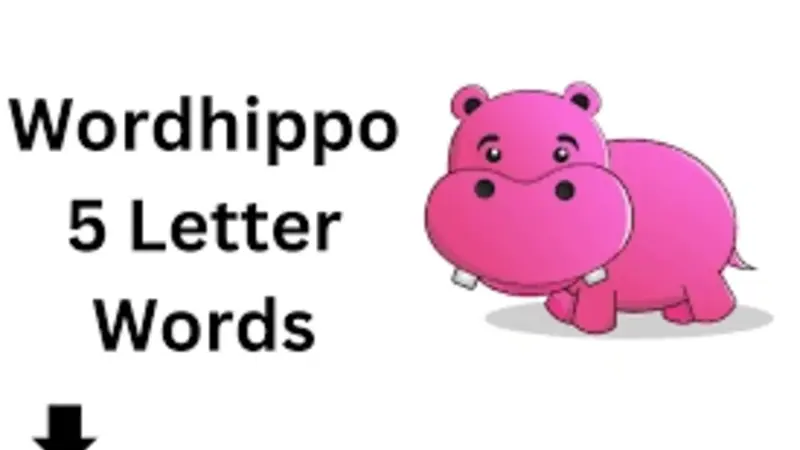Introduction: Why 5-Letter Words Matter in British English
Vocabulary is the foundation of any language, and in British English, 5-letter words are particularly interesting. They’re short enough to be memorable, yet versatile enough to carry weight in conversations, writing, and even games. Whether you’re improving your spelling, playing Scrabble, or strengthening your British vocabulary for work or study, 5-letter words can be surprisingly powerful.
What is Wordhippo and How It Helps Vocabulary Building
Wordhippo is a user-friendly tool for anyone who loves words. From definitions and synonyms to rhyming words and word length filters, Wordhippo allows users to explore vocabulary in a highly focused way. By selecting filters like “5-letter words” and “British English,” users can find lists tailored exactly to their learning goals. It’s ideal for learners, writers, teachers, and language lovers who want to expand their vocabulary in a practical, intelligent way.
British vs. American Spelling: Why It Matters in Word Choices
One key point to understand when learning 5-letter words in British English is spelling variation. British and American English differ in several common word endings and spellings. For example:
- “Fibre” (British) vs. “Fiber” (American)
- “Honour” vs. “Honor”
- “Theatre” vs. “Theater”
Although not all of these are 5-letter words, similar patterns exist in shorter words too. So, using Wordhippo with the British English setting helps ensure you’re learning the version used in the UK, which is important for formal writing, school, and local communication.
Top 5-Letter British English Words You Should Know
Here are a few popular and useful 5-letter British English words you might find on Wordhippo:
- Plumb – perfectly vertical or exact (often used in construction or measurement)
- Lorry—the British term for what Americans call a “truck”
- Mauve—a pale purple colour commonly used in UK writing and fashion
- Nappy—the British version of the word “diaper”
- Crump—a soft muffled sound (also used informally in war-related vocabulary)
Each of these words reflects how British English vocabulary can differ from its American counterpart—in both sound and meaning.
Using 5-Letter Words in Daily British Conversations
British English is full of personality, and these 5-letter words are often used in daily speech.
For example:
- “Pop the nappy in the bin, will you?”
- “The lorry blocked the high street for an hour!”
Such words are part of the cultural and social vocabulary of the UK, so learning and using them helps you sound more native and connected.
How These Words Help in Word Games (Scrabble, Wordle, etc.)
In games like Scrabble, Wordle, or Crossword Puzzles, 5-letter words are gold. They’re often the sweet spot—long enough to earn points, short enough to fit into tight spaces.
Using British-specific words like “lorry” or “nappy” can give you an edge, especially if the game is set to UK English. Wordhippo becomes a powerful tool here—just set the length to 5 letters and filter for UK spelling to unlock a treasure trove of useful words.
Tips for Remembering and Practicing New Words
Learning is only half the job; retaining and using the words is where growth happens. Try these methods:
- Flashcards—Make 5-letter word flashcards with a definition and example sentence.
- Use Wordhippo daily—search one new word per day and try to use it.
- Speaking practice—Challenge yourself to use five new 5-letter words in one conversation.
- Label things around your home—e.g., write “chair,” “plant,” or “mug” to visualize usage.
Commonly Confused British 5-Letter Words
Some 5-letter words look or sound similar but mean different things or are confused between British and American spellings. For example:
- “Plumb” vs. “Plump”—Onemeans straight, the other means chubby!
- Crumb vs. Crump—One is food-related, the other sound-related.
- Trous (short for trousers) vs. Truss – Clothing vs. structure.
Understanding these subtle differences helps avoid mistakes and improves fluency.
Learning Through Context: Mini Paragraphs Using These Words
Let’s use some of these words in a short paragraph:
“I heard a crump in the distance as the lorry reversed down the narrow lane. I checked to see if the plumb line was still hanging straight, just as Mum asked me to toss the nappy in the bin. The baby’s room was painted a soft mauve, and it felt warm and calming.”
Using context like this helps solidify how and when to use new words naturally.
Conclusion: Small Words, Big Impact on British Vocabulary
5-letter words may be short, but they’re incredibly powerful in communication, games, and learning. Using tools like Wordhippo to explore and practice British English vocabulary is a smart way to boost fluency. Whether you’re preparing for exams, writing better content, or just want to sound more British—focusing on small, daily vocabulary improvements makes a big difference.
